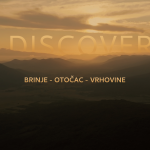As Ivan Tominac/Poslovni Dnevnik writes, according to PISA data, differences in primary school student achievement are related to socioeconomic status, geographic region, and gender. Croatia has a low share of highly educated people (Croatia: 28.7%; EU-28: 39.9%, according to Eurostat) and a very low participation of adults who decide to continue their further education (Croatia: 3%; EU-28: 10.8%, according to Eurostat).
The reasons for this aren’t always a lack of desire or motivation, they’re sometimes institutional in nature, and the obstacles that arise lead to inequalities in access to education. With the aim of eliminating Croatian educational inequalities and enabling equal access to further learning, a new national network of experts, scientists and civil society organisations has been launched to investigate educational inequalities across Croatia, from kids of pre-school age to people in higher education.
This new Croatian educational network is called “Lifelong Learning Available to All” and is part of a wider project led by the Institute for the Development of Education, and co-financed by the European Union from the European Social Fund. The main aim of their activities is, of course, to make recommendations that will eliminate Croatian educational inequalities and slim down the band of inequality that young people often encounter during their education.
The purpose of the network is to research and solve the problem of social inequalities in regard to access to, attendance and completion of education in Croatia, ie to provide equal educational opportunities to members of socially excluded social groups.
“So far, there has been no network or coalition of civil society organisations (CSOs) linking levels of education from pre-school to higher education, including adult education. In addition, so far there has been no structured initiative between CSOs, the scientific community and public administration to address these alarming Croatian educational inequalities.
Currently, CSOs in the field lack the capacity for quality and coordinated action in the field of education: knowledge (on other parts of the education system; on the causes of educational inequalities); skills (for conducting research; for public advocacy); and networking with other stakeholders. By strengthening these capacities and taking a more coordinated action, CSOs can play an important role in the process of publicly pointing out the problems of Croatian educational inequalities and in proposing recommendations for public policies,” said Mia Lakatos, the TEMCO project manager from the Institute for Educational Development.
The project will advocate, and at the national level, the realisation of equal opportunities at all levels of education (preschool and early primary, secondary, higher, adult education) for members of various marginalised groups (persons of lower socio-economic status, persons with disabilities, refugees, asylum seekers, Roma people, people from rural areas, etc.).
The network consists of a team of 25 experts from 10 organisations, and their goal is to work on the networking and capacity building of at least 12 associations and 3 other institutions in order to work more effectively on policy advocacy across the entire vertical of the education system. Furthermore, scientific research will be conducted in cooperation with the scientific community and associations on the dimensions of educational inequalities at the level of early and preschool education, primary, secondary and higher education, as well as adult education.
Finally, it is equally important to mention that they plan to hold 6 structured dialogues with decision makers (at both a national and local level), educational institutions and users of the education system to identify societal needs, discuss research results and advocate for education policy recommendations.
For more, follow our lifestyle section.










